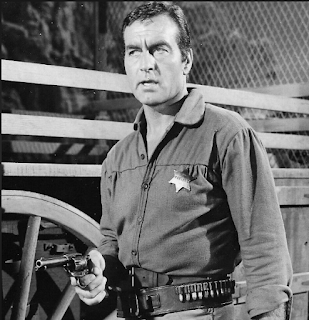In this 4th book in the 'Hackberry Holland' series, Hackberry tries to help the grown son he abandoned as a child. The book can be read as a standalone. ***** Hackberry Holland, former Texas Ranger and lawman, seems to find trouble wherever he goes. He runs his mouth, gets blackout drunk, and is quick to use his guns and fists.  As the story opens, it's 1916 and Hackberry (Hack) is in Mexico searching for his estranged son Ishmael - a captain in the U.S Army.  The Mexican Revolution is ongoing, and there have been sporadic hostilities between the U.S. and Mexico. Hack comes upon a brothel called 'The House of the Rising Sun', where thuggish Mexican troops are guarding a hearse.   The Mexicans are furious about Texas Rangers shooting up a train full of civilians, so they grab Hack, torture him, lock him up, and plan to kill him. Hack is freed by the brothel's owner, Beatrice DeMolay - a madam and shrewd businesswoman - who gives him a couple of guns. Hack kills four Mexican soldiers and searches the hearse, which contains a large cache of weapons, money, and a bejewelled double chalice. Hack takes the money and chalice, blows up the weapons in the hearse, and heads for his home in Texas.  Unfortunately for Hack, the hearse - and its contents - belonged to an Austrian arms dealer named Arnold Beckman, a sadistic sociopath who claims the chalice is the Holy Grail - and who'll do anything to get it back.  In flashbacks to the past, Hack meets Ruby Dansen, a beautiful Danish woman who's down on her luck. Hack and Ruby have a son - Ishmael - but can't marry because Hack never bothered to divorce his previous wife, Maggie Bassett. All this leads to a world of trouble. Hack's drinking and trouble-making drive Ruby and Ishmael away, and Maggie - who was a schoolteacher turned prostitute - swoops back into Hack's life. At one point Hack tries to make up with Ruby, but things go wrong and Ruby and young Ishmael are left poor, on their own, and very resentful of Hack.  For her part, Maggie eventually divorces Hack, taking half of everything he owns. Back in the present, a grown up Ishmael is sent to Europe during WWI, and is badly injured at the Battle of the Marne in 1918. Ishmael ends up in a San Antonio hospital, on the long road to recovery.  Hack, who claims that he always loved the boy, writes Ishmael letters.....but the lad won't even open them. By now Ruby is a socialist firebrand and union organizer. She wants to take care of Ishmael, but runs into tough interference.  During all this, Beckman has been trailing Hack and scheming to get his hands on the chalice. The Austrian - being rich, powerful, and evil - has spies everywhere, co-opts law enforcement, hires murderous punks, and even makes an arrangement with Maggie - who's almost unbelievably devious and amoral.  Sadly for Ishmael, he becomes a pawn in the duel between Hack and Beckman - with terrible consequences all around. As events play out, Maggie, Ruby, and Beatrice all play important parts in the story.....but I don't want to give too much away. The book has deep, compelling characters and rich, evocative scenes that draw the reader in. Like many of Burke's books, the story involves a struggle between 'good' and 'evil' and - while Beckman is a wonderfully despicable villain - Hack is something of a 'flawed hero.' He administers frontier justice and treats women in a less than noble fashion. Furthermore - in one scene - Hack gets behind the wheel of a friend's car (which he doesn't know how to drive), purposely wrecks it, and leaves the black chauffeur to deal with racist authorities. I can't fathom this behavior.  The book has elements of magical realism: Ishmael and Hack have a channel of communication through visions and dreams and Beatrice's chauffeur, André - a former voodoo priest - also has spiritual abilities.  All this adds an intriguing element to the story. My biggest criticism of the book is probably that the climax is unnecessarily long and drawn out. This is a minor quibble though. I enjoyed the book and recommend it - especially to fans of James Lee Burke. Rating: 4 stars | ||
Mysteries, Fiction, Non-Fiction, Memoirs, Literary Novels, Humor....all kinds of books.
Monday, May 29, 2017
Review of "House of the Rising Sun: A Hackberry Holland Novel" by James Lee Burke
Subscribe to:
Post Comments (Atom)

I like Burke and flawed-hero stories. I'll have to look at this one.
ReplyDeleteI'm with you Jacqui; Burke's one of my favorite authors. I think you might like this book :)
Delete